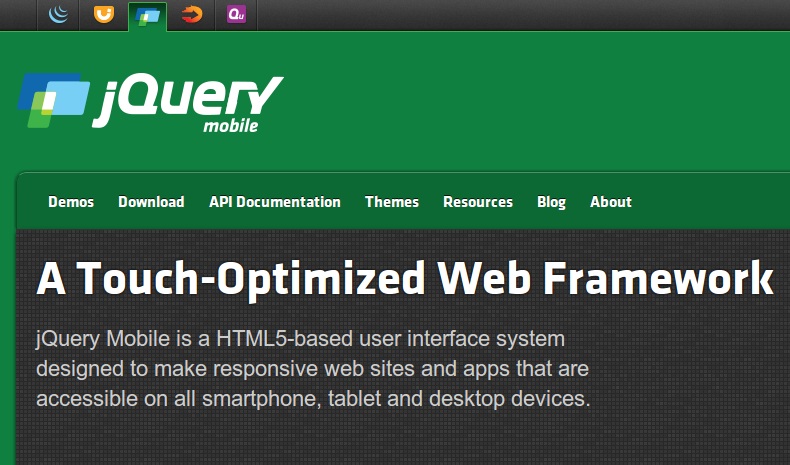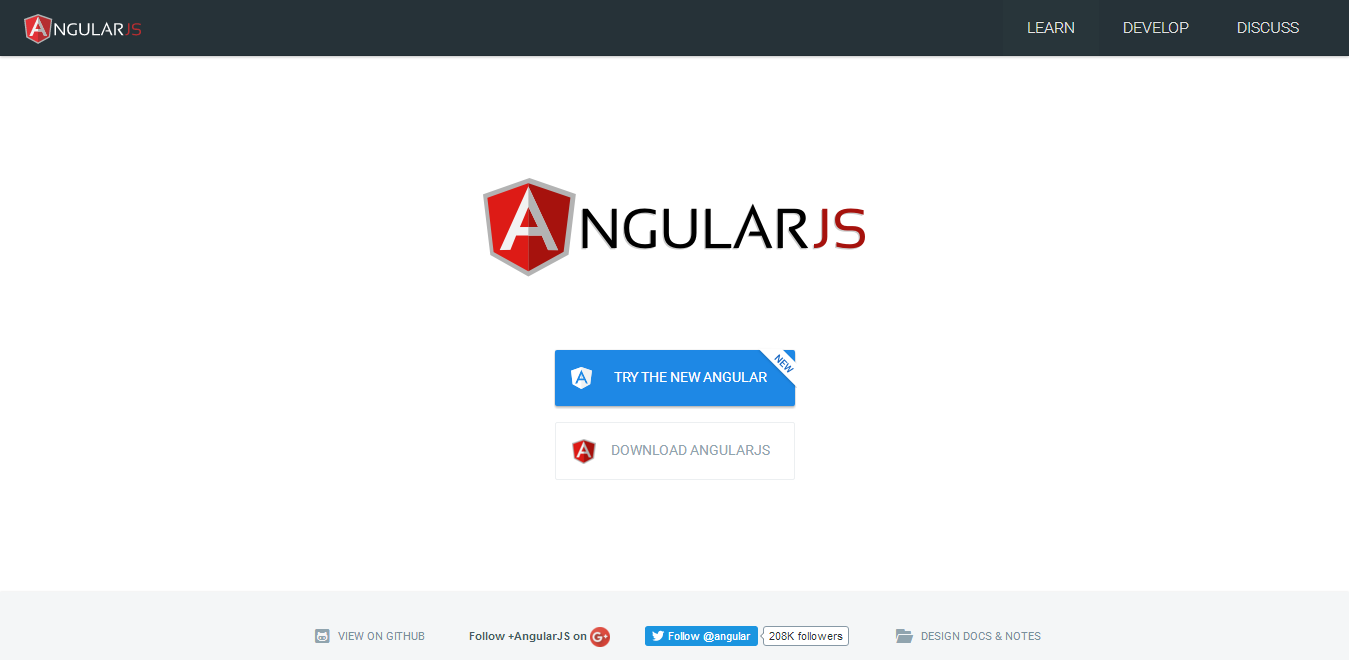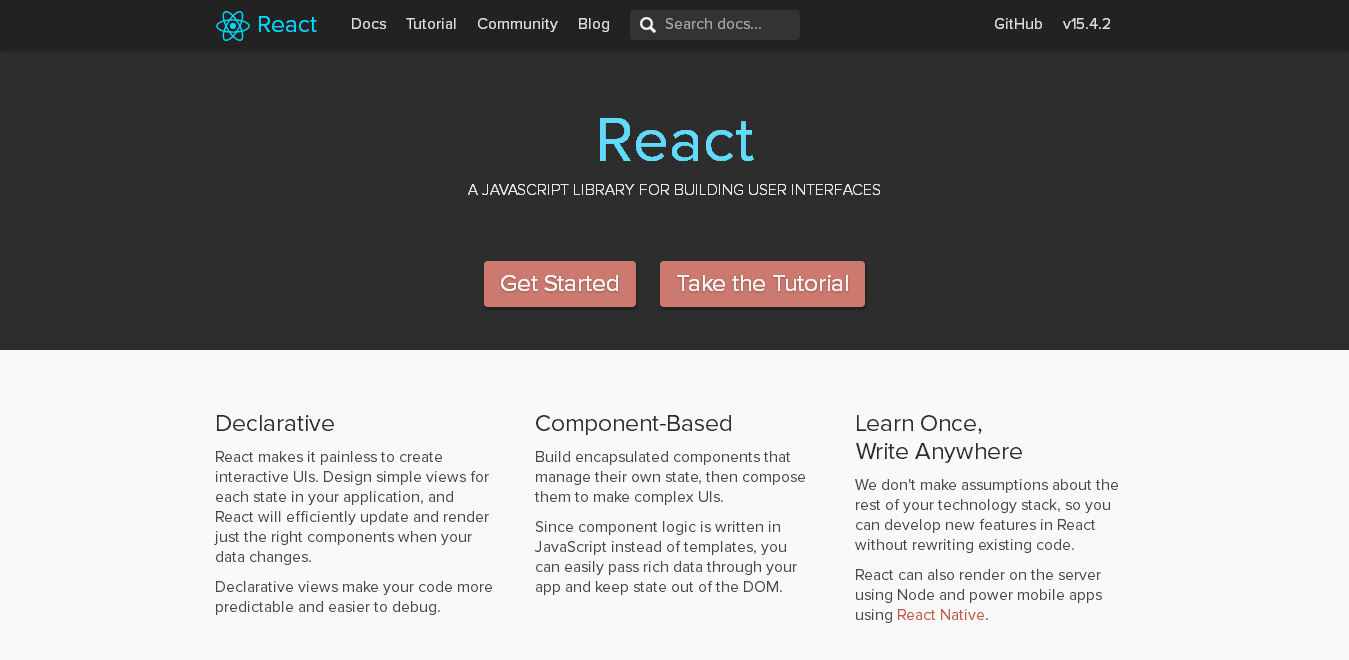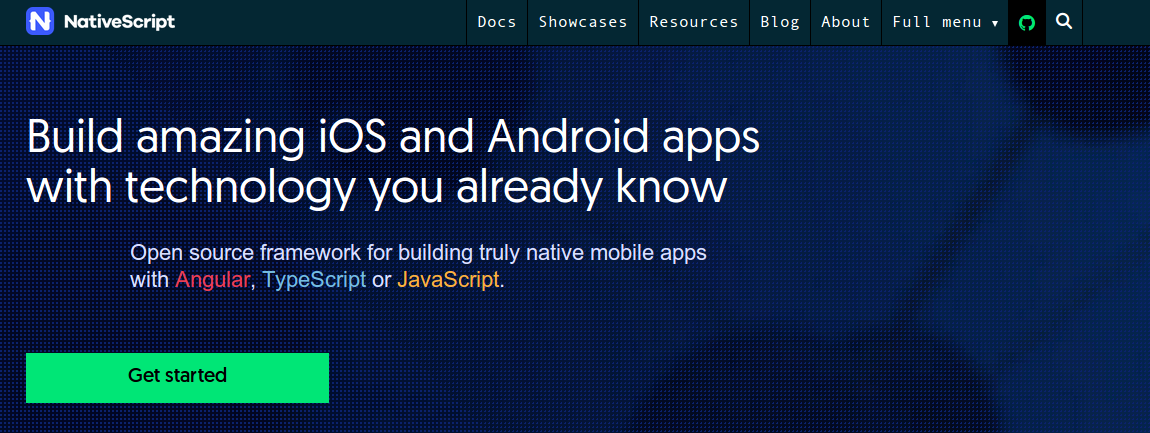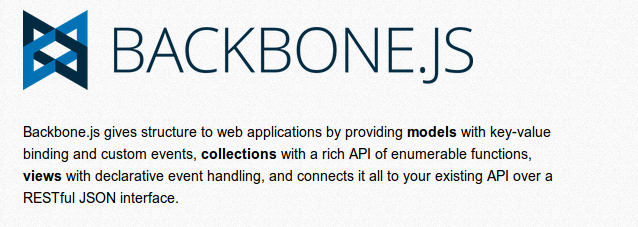JavaScript is gaining popularity as a frontend programming language, and its usage as client-side scripting is awesome in dynamic web development. Various JavaScript frameworks hold significance when developers are going to Ajax-based application development, two-way data binding, event handling, and access cross-browser support. In due course, we have initiated this post to acknowledge web developers the significance of JavaScript frameworks and make a selection out of top 10 frameworks.
Best JavaScript Frameworks for Mobile App
Below is the list of best JavaScript frameworks for mobile app development in year 2017.
#1: jQuery Mobile
The jQuery mobile framework carries less code to do more agenda on the next level. Besides developing mobile-friendly websites, it is useful for mobile app development too. It supports a number of native UI including iOS, Android, and others to deliver native-like experiences.
#2: Angular JS
Today it is the most famous JavaScript framework for hybrid mobile application development for seamless native-like experiences. Single page web apps are trendy, and Angular JS is the best tool to accomplish it using directives. Directives are helpful in adding reusable code in the app to incorporate dynamic functionality. It has all the features that Bootstrap 3 is missing. It has awesome components such as switches, overlays, scrollable areas, sidebars, and absolute positioned navigation bars.
#3: Sencha Touch
It is one of the popular HTML powered frameworks for hybrid mobile app development. It uses JavaScript heavily and wraps the bundles with native code to access the native hardware and OS features as well as functionality. It provides numerous developer-friendly features such as themes for mobile apps, MVC software architecture pattern for rapid development, and extensive data packages.
#4: React Native
If you left native cross-platform mobile app development option only, you have React Native framework takes entirely different approaches than Xamarin. You may have familiar HTML-like tags and CSS-like stylesheet.
It has own DOM so React JS calculates changes needed in advance and updates accordingly It can make proper use of native API and JSX is a sugar-syntax React JS runs on server, and virtual DOM rendered to the browser, so resulting page allows search engine indexing with ease and favors all SEO processes It focuses on UI so gives responsive interface so keep application running smoothly and without interruptions With the installation of Chrome extension, you can look into DOM for efficient debugging
#5: Titanium
It is one of the elderly hybrid mobile app development frameworks. It uses JavaScript as primary technology along with extensive support for HTML 5 and CSS 3. With updates, it has retained the popularity in the market and has a big community of mobile developers.
#6: PhoneGap
It is an open-source initiative and primarily based on Cordova technology, which is using built-in JavaScript API to get a connection with native features of device and OS. It has a WYSIWYG IDE and built-in emulator. Therefore, it is the most popular among all strata of the hybrid app developers. It uses JavaScript along with HTML and CSS technologies.
#7: Meteor
Besides the development, JavaScript code in Meteor gives you control over your app.
It lets you update JS code without the involvement of developer Hot code push function allows you to deploy changes on all mobile OS platforms It has miniMongo database which is a JS implementation of MongoDB API By implementing miniMongo database in mobile devices, it maintains a local copy of data in local memory It provides mobile-to-server data communication and sync functions
#8: NativeScript
It developed by Telerik as an innovative hybrid app development framework using JavaScript as primary coding language. With the help GitHub, it empowers developers to use JS, TypeScript, and Angular 2.0 to develop a native category of cross-platform apps.
#9: Backbone JS
It is an old guy in the JavaScript framework niche. It is an exceptional framework because it is lightweight and capable of managing current demands. It is a versatile MVC framework, so it powers Twitter, Pinterest, and other giants. Developers prefer Backbone.js when speed matters the most in a single project.
#10: Ember JS
It is a JavaScript framework to develop highly complex and challenging hybrid mobile applications. Ember.js offers two-way binding method with one hand and offers fastboot.js module at another hand to pull up the things. Fastboot.js helps in DOM rendering.
Conclusion:
Besides these top 10 JavaScript frameworks, the market is flooding with other innovative JS frameworks and need work well with the integration of other technology frameworks too.
